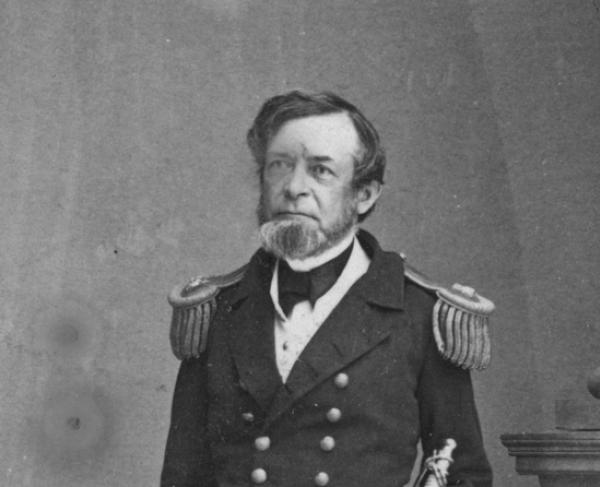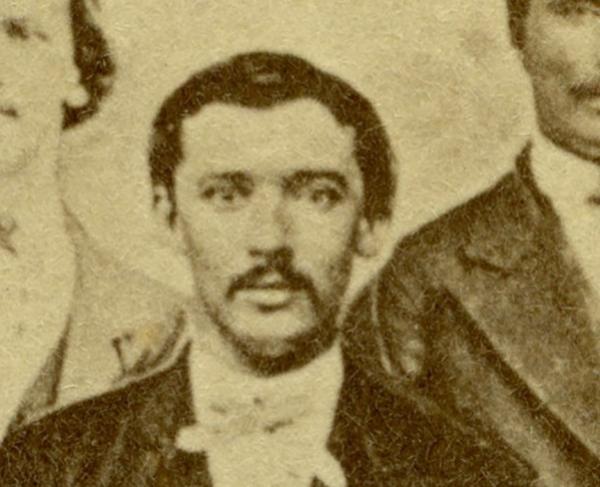Andrew Hull Foote

Andrew Hull Foote, one of the first American rear-admirals, was born September 12, 1806, in New Haven, Connecticut. He attended the United States Military Academy at West Point for six months in 1822 before leaving to join the navy as a midshipman on the USS Grampus. Foote travelled all over the world in his time in the navy, spending time in the Caribbean, the Pacific, the Mediterranean and the African coast. In 1837, he circumnavigated the globe aboard the USS John Adams. Foote was a committed advocate of temperance, and in 1843 succeeded in making the USS Cumberland the first completely dry ship in the U.S. Navy. Many historians credit Foote as the driving force behind the total elimination of the spirit ration by the navy in 1862. In the early 1850s, Foote patrolled the African coast for slave ships and became a firm proponent of abolitionism and the efforts of the American Colonization Society in Liberia. In 1856, he was promoted to commander of the USS Portsmouth in the Asia squadron. While observing British operations against the Chinese at Canton during the Second Opium War, Foote personally led a landing party and destroyed four Chinese forts after being fired upon from shore.
When the Civil War began in 1861, Foote was in command at the Brooklyn Navy Yard, but was quickly sent west to prepare for a riverine invasion of the South and established a good relationship with his army counterpart, Ulysses S. Grant. He set to work equipping and organizing the Union flotilla, and took a leading role in the attack on Fort Henry on February 6, 1862. In the subsequent attack and fierce fight at Fort Donelson, Foote’s force was turned back and he was himself wounded, though the fort ultimately surrendered to Grant. The attack on Donelson had a visible effect on Foote, who was markedly more cautious in support of the later attacks against New Madrid and Island No. 10. In May 1862, Foote took a leave of absence to recover from the wound he had sustained at Donelson. He was honored with a promotion to the new rank of admiral in July but was engaged in a bureaucratic role that did not suit him. In 1863, Foote agreed to take command of the South Atlantic Blockading Squadron, and was on his way to replace Samuel Du Pont when he was suddenly and unexpectedly struck by Bright’s disease. He died in New York City on June 26, 1863.

